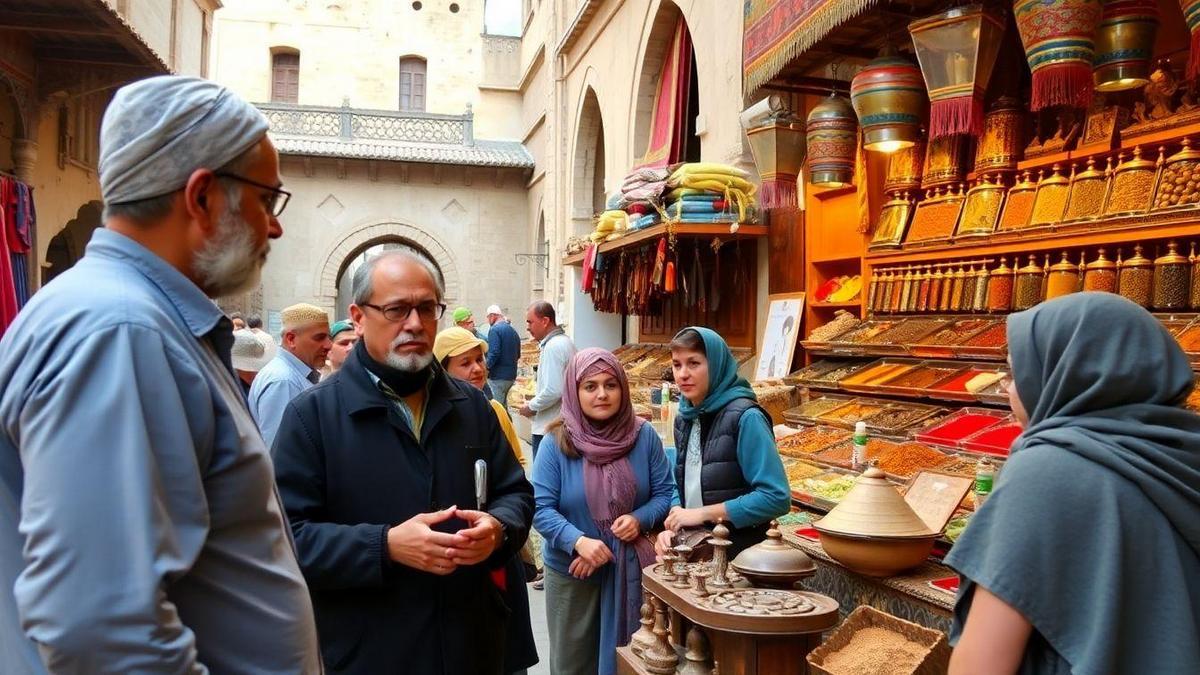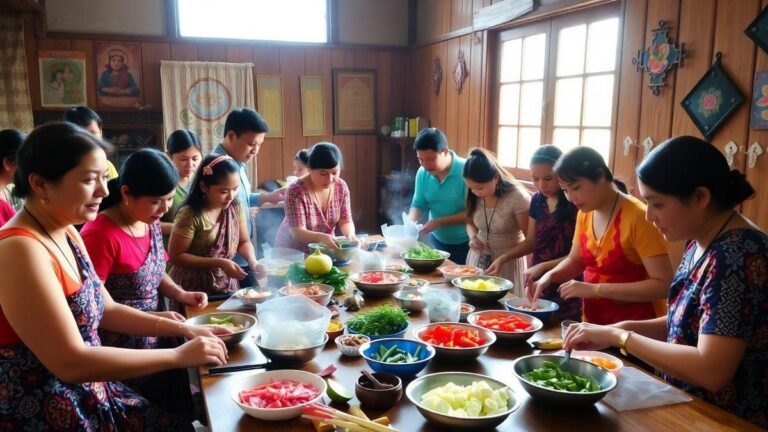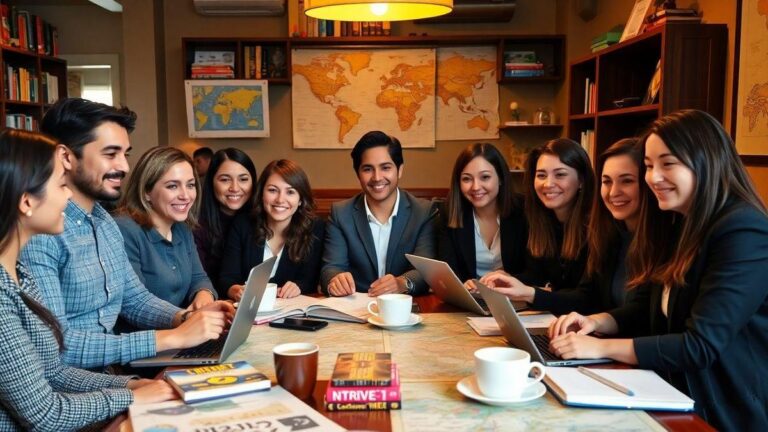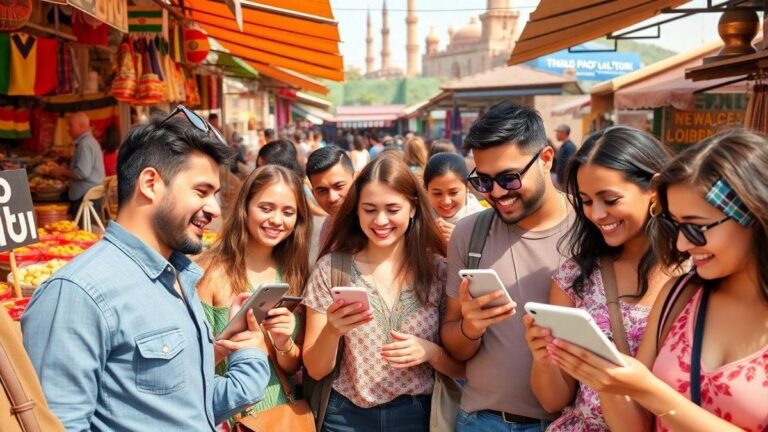Arabic language essentials for Middle Eastern historical tours
If you’re planning a trip to the Middle East, knowing Arabic language essentials for Middle Eastern historical tours is a game-changer! This article will guide you through key phrases, must-have vocabulary, and cultural insights to enrich your journey. You’ll feel more connected with the locals, overcome language barriers, and enjoy meaningful conversations. Get ready to dive in and make your travel experience unforgettable!
Your Quick Takeaways
- Learn basic Arabic greetings to connect with locals.
- Know key phrases for asking directions and help.
- Familiarize yourself with cultural customs and etiquette.
- Understand the importance of hospitality in Middle Eastern culture.
- Practice simple phrases to enhance your travel experience.
Essential Arabic Vocabulary for Travelers
Key Arabic Phrases You Should Know
When you’re traveling, knowing a few key phrases can make a world of difference. Here are some essential Arabic phrases that will help you connect with locals and navigate your journey smoothly:
| English Phrase | Arabic Phrase | Pronunciation |
|---|---|---|
| Hello | مرحبا | Marhaba |
| Thank you | شكرا | Shukran |
| Please | من فضلك | Min fadlak |
| Yes | نعم | Na’am |
| No | لا | Laa |
| How much is this? | كم ثمن هذا؟ | Kam thaman hatha? |
| Where is…? | أين …؟ | Ayna …? |
These phrases are your ticket to friendly interactions. For example, when you say “Shukran” after a meal, you’ll see a smile light up the server’s face. It’s all about those small connections!
Must-Have Arabic Words for Your Journey
Now, let’s dive into some must-have words that will be super handy on your trip. Knowing these will help you get around and feel more comfortable:
- Water – ماء (Ma’a)
- Food – طعام (Ta’am)
- Bathroom – حمام (Hammam)
- Help – مساعدة (Musa’ada)
- Friend – صديق (Sadiq)
Imagine you’re out exploring a bustling market and you want to ask for water. Just saying “Ma’a” will help you quench your thirst and feel refreshed!
Building Your Arabic Language Basics
Starting with the basics is key. Here’s how you can build your Arabic language skills step by step:
- Practice Regularly: Try to use a new word or phrase every day. Consistency is your best friend!
- Listen and Repeat: Tune into Arabic music or podcasts. Mimicking the sounds helps with pronunciation.
- Engage with Locals: Don’t be shy! Use your new words when speaking to locals. They’ll appreciate your effort.
By focusing on these basics, you’ll find that the Arabic language essentials for Middle Eastern historical tours become easier to grasp.
Cultural Insights for a Richer Experience
Understanding Middle Eastern Culture Through Language
When you dive into the Arabic language, you’re not just learning words; you’re stepping into a vibrant world filled with rich traditions and deep-rooted customs. Language is a window into a culture, and understanding it can help you appreciate the nuances of Middle Eastern life. For instance, greetings in Arabic can vary by region. Saying “As-salamu alaykum” (Peace be upon you) is a common way to greet someone, showing respect and warmth.
Here are a few key phrases that can help you connect better:
| Arabic Phrase | English Translation |
|---|---|
| Marhaban | Hello |
| Shukran | Thank you |
| Afwan | You’re welcome |
| Ma’a as-salama | Goodbye |
By learning these basic expressions, you open doors to deeper conversations and friendships. You’ll find that locals appreciate your effort to speak their language, which can lead to meaningful interactions.
How Language Shapes Your Travel Experience
Traveling in the Middle East can be a transformative experience, especially when you embrace the local language. Using Arabic can change how you see the places you visit. Instead of just being a tourist, you become part of the community.
Imagine wandering through a bustling market, where the scent of spices fills the air. When you ask a vendor about their products in Arabic, you’re not just buying something; you’re engaging in a story. You learn about the origins of the spices, the traditions behind the dishes, and the passion of the people who create them.
Being able to communicate in Arabic can also help you navigate cultural differences. It allows you to ask questions, seek recommendations, and share experiences that you might miss if you relied solely on English.
Connecting with Locals Using Arabic Expressions
Connecting with locals is one of the best parts of traveling. Using Arabic expressions can make you feel more at home in a new place. Here are a few tips on how to use the language to your advantage:
- Practice greetings: Start conversations with a friendly “Marhaban.” It’s a great icebreaker!
- Show gratitude: Use “Shukran” when someone helps you. It shows respect and appreciation.
- Ask for help: If you’re lost, don’t hesitate to say “Ayna…?” (Where is…?) to get directions.
These small gestures can lead to big smiles and warm responses. You might even find a local who is eager to share stories or show you hidden gems in their city.
Tips for Effective Arabic Conversations
Simple Strategies for Speaking Arabic
When you’re diving into Arabic conversations, a few simple strategies can make a big difference. Start by learning common phrases that you can use every day. Here are a few to get you started:
- Hello – مرحبا (Marhaban)
- Thank you – شكرا (Shukran)
- Yes – نعم (Na’am)
- No – لا (La)
Practice these phrases until they roll off your tongue. You can also try to listen to Arabic music or watch Arabic shows. This will help you get a feel for the language and improve your pronunciation.
Another great tip is to find a language partner. This could be a friend or someone you meet online. Speaking with someone else will help you gain confidence and improve your skills. Remember, making mistakes is part of the learning journey!
Overcoming Language Barriers in Historical Tours
When you’re on a historical tour in the Middle East, speaking Arabic can really enhance your experience. But don’t worry if you’re not fluent! Here are some ways to overcome any language barriers:
- Use a translation app: These apps can help you translate words and phrases on the go.
- Learn key phrases related to history: Knowing terms like “museum” (متحف, Mat’haf) or “ancient” (قديم, Qadeem) can help you connect better with your tour guide.
- Ask questions: Don’t hesitate to ask your guide to repeat or explain something if you don’t understand. Most guides are happy to help!
Enhancing Your Tour with Arabic Conversation Tips
To truly make the most of your historical tours, consider these Arabic conversation tips:
| Tip | Description |
|---|---|
| Be Curious | Ask about the history and culture in Arabic. |
| Practice Active Listening | Focus on what your guide is saying. |
| Use Body Language | Sometimes gestures can help convey your message. |
By using these tips, you’ll not only learn more about the history but also get a chance to practice your Arabic. Imagine asking your guide a question in Arabic and seeing their smile! It’s a great way to connect with the culture.
Frequently Asked Questions
What are basic Arabic phrases I should know for tours?
Start with greetings like “Marhaba” (hello) and “Shukran” (thank you). These small phrases go a long way!
Is learning Arabic grammar important for traveling?
Not really! Focus on key phrases. Grammar can wait. Your main goal is to communicate!
How can I practice Arabic before my trip?
Use language apps, watch Arabic shows, or join conversation groups. It’s fun and helpful!
What are good resources for learning Arabic quickly?
Look for flashcards, language apps, or online videos. These tools are great for quick learning!
Why should I learn Arabic for historical tours?
Knowing Arabic enhances your experience. You’ll connect better with locals and enjoy the history more!

Hey, I’m Paula — traveler, language nerd, and the curious mind behind znewz.com. I’ve always believed that real connections happen through words, gestures, and shared experiences — not algorithms. That’s why I created this blog: to share travel stories from around the world and explore how language helps us connect in ways that AI still can’t. Whether I’m getting lost in a tiny town or striking up a chat in a language I barely know, I’m here to show that sometimes the best moments happen when tech takes a back seat.





